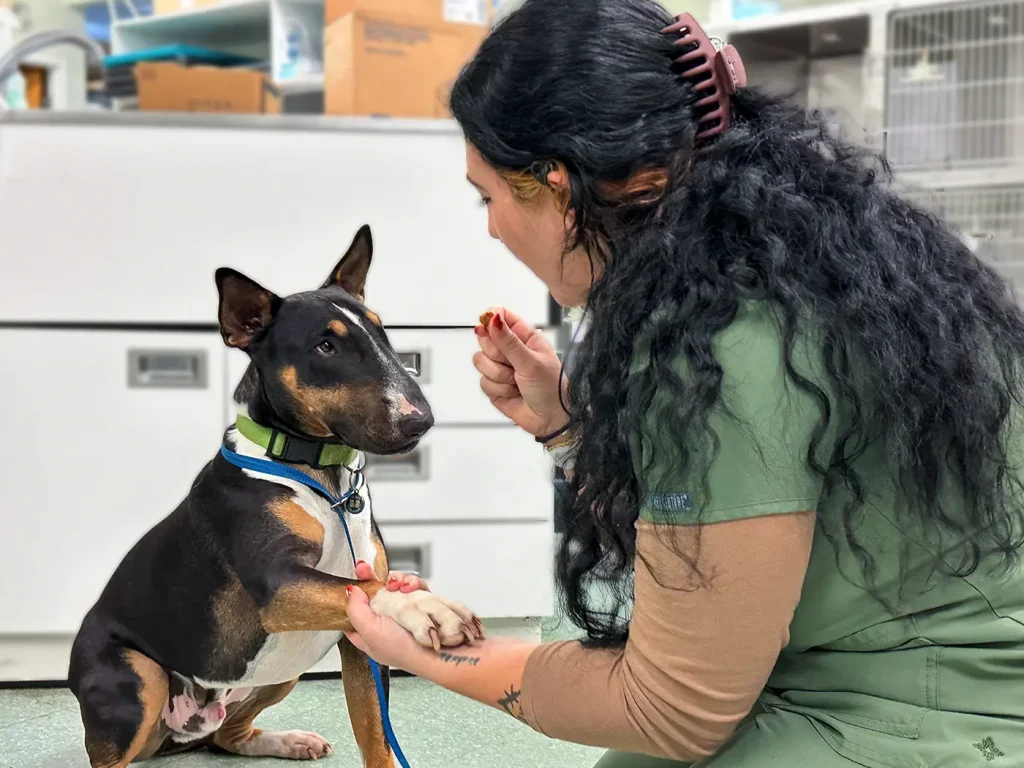
When it comes to critical canine health situations, few emergencies are as immediate and perilous as a dog bloat emergency in Swansea, MA. Also known as gastric dilatation-volvulus (GDV), this condition causes the dog’s stomach to fill with gas and potentially twist, cutting off the blood supply and putting the dog’s life at risk in a matter of hours. For pet owners in Swansea, recognizing the signs early and knowing when to seek immediate help could be the difference between life and death for their beloved companion.
This step-by-step guide leads you through the most important signs, likely causes, and emergency measures to take if your dog is displaying symptoms of this life-threatening situation.
What is Dog Bloat (GDV) and Why is It So Hazardous?
Dog bloat emergency refers to a condition where the dog’s stomach fills with gas, water, or food and, in extreme cases, twists on itself (volvulus), causing obstruction of blood circulation. This can cause rapid decline, including shock, collapse, and potentially sudden death if not treated urgently.
Due to its sudden onset and severity, a dog bloat emergency should always be considered a critical veterinary emergency. Once torsion occurs, circulation to the stomach and other organs is often severely impaired, and irreversible damage may happen within minutes.
Identifying the Warning Signs of Bloat in Dogs
The most important step any dog owner can take is learning how to recognize bloat in dogs symptoms. Should you notice any signs in your dog, follow these steps.
- A tight, difficult-to-touch abdomen that is swollen or bloated
- Retching or unproductive attempts to vomit
- Excessive drooling and salivation
- Restlessness or pacing with the dog unable to settle
- Shallow, labored breathing or panting
- Signs of pain such as whining, stiff posture, or reluctance to move
- Pale gums, weak pulse, and sudden collapse in the advanced stages.
If you observe more than one of these bloat in dogs symptoms—especially a bloated belly combined with retching and agitation—seek emergency veterinary help immediately.
Which Breeds of Dog Are Most Vulnerable
Although bloating dogs can occur in any breed, certain types are more prone due to body structure and genetic factors.
- Great Danes
- German Shepherds
- Doberman Pinschers
- Standard Poodles
- Irish Setters
- Saint Bernards
That said, any dog—including small or mixed breeds—may experience dog bloated stomach if exposed to high-risk conditions or behaviors.
Common Triggers and Risk Factors
Although the actual origin of GDV is unknown, there are a number of contributing variables that raise the risk.
- Eating one large meal per day instead of multiple smaller ones
- Vigorous exercise immediately before or after eating
- Drinking large amounts of water after meals
- Stressful events such as travel, boarding, or sudden schedule changes
- A family history of bloating dogs (genetic predisposition)
Many episodes of dog bloat emergency occur after a large meal followed by activity, so mealtime routines must be managed carefully.
How to Act If You Suspect Your Dog Is Experiencing Bloat
Bloat is an urgent medical crisis. If you notice any signs in your dog, follow these steps.
- Call your veterinarian or emergency clinic immediately. Describe symptoms and mention your suspicion of dog bloat emergency so they can prepare for possible surgery.
- Avoid home remedies, and do not wait to see if the symptoms get better. Every minute counts.
- Avoid giving your dog food, water, or medication. These can complicate emergency treatment.
- Transport your dog to the vet quickly and safely.
If you live in or near Swansea, MA, identify and save contact info for local emergency vet clinics before an emergency strikes.
How Veterinarians Manage and Treat Dog Bloat
Once your dog is in professional care, treatment usually includes:
- X-rays and physical exams to confirm GDV
- Decompressing the stomach with a tube or needle.
- IV fluids to stabilize your dog
- Emergency surgery to untwist the stomach and remove damaged tissue
- Gastropexy (a procedure to attach the stomach to the body wall to prevent future twisting)
Early treatment greatly improves survival chances. Untreated dog bloated stomach are often fatal.
How to Minimize the Risk of Bloat in Dogs
Though not all cases are preventable, the following measures reduce the risk of bloating dogs:
- Offer smaller, more frequent meals rather than one large meal.
- Use slow-feeder bowls for fast eaters
- Limit activity before and after meals
- Prevent water binging after meals or exercise
- Reduce anxiety and stress in sensitive dogs
- Discuss preventative gastropexy with your vet if you have a high-risk breed
Simple daily adjustments can significantly reduce the chances of a dog bloated stomach emergency.
Take Action to Safeguard Your Dog Against a Dog Bloat Emergency Swansea MA
Identifying the signs of bloat and responding promptly can save your dog’s life. At first, the symptoms might appear mild, but they can intensify in just minutes. Talk to your local Swansea, MA veterinarian today to set up a response plan in case of dog bloat emergency. Be proactive, stay informed, and keep emergency contact info accessible—because when it comes to dog bloated stomach emergencies, every second matters.
 508-730-1112
508-730-1112